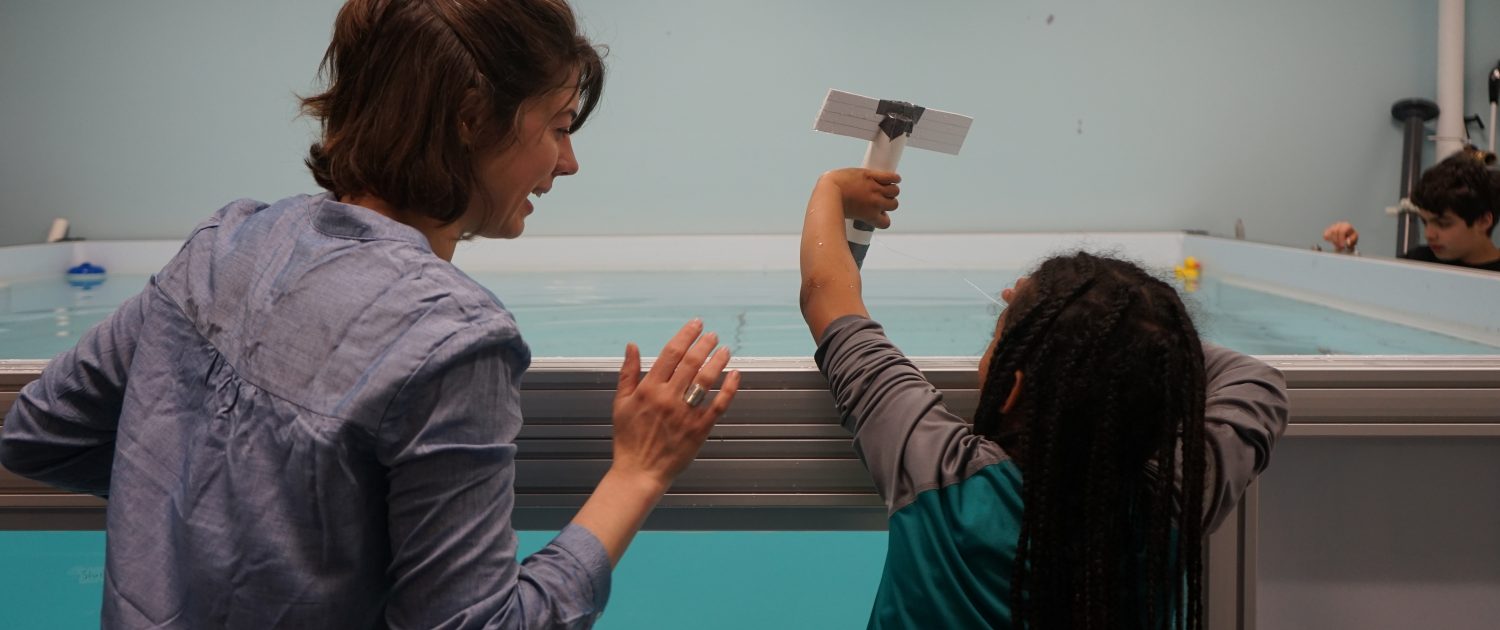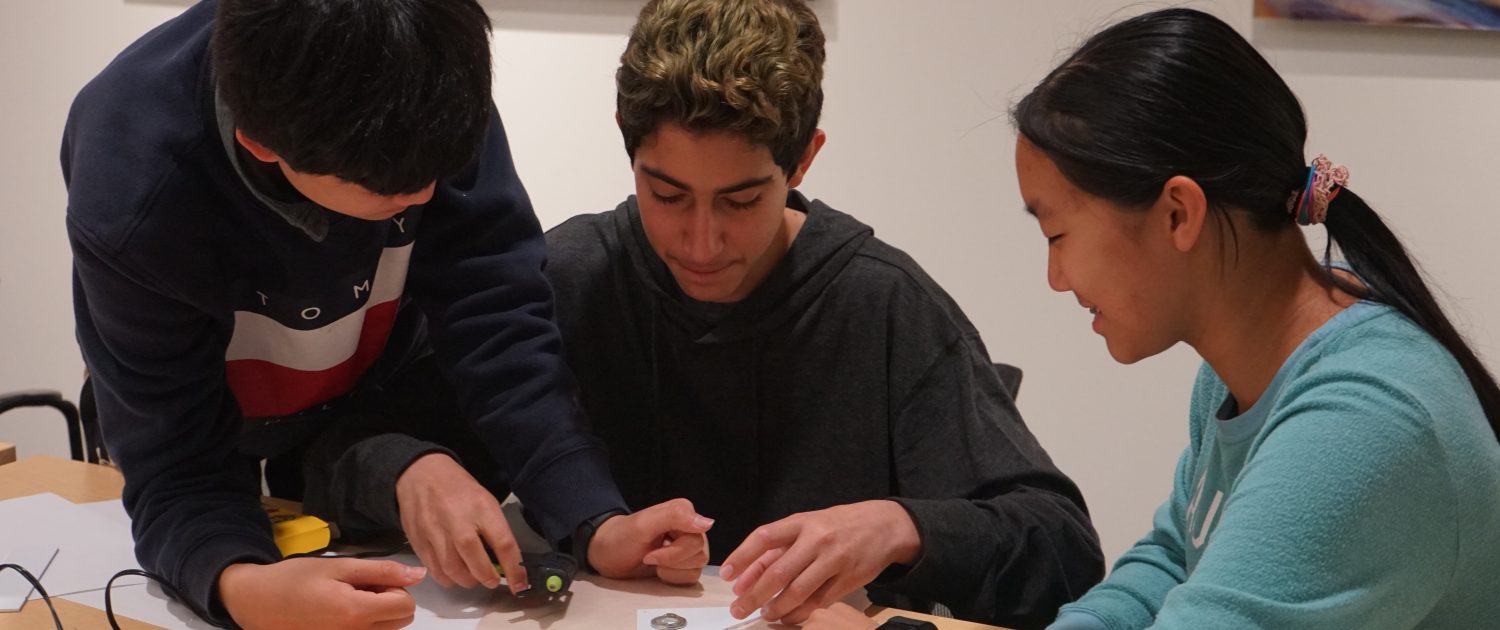Empowered Brains at MIT Sea Grant – Explorations in Ocean Engineering

Photographs and EEEeb writeup by Avery Normandin.
Ecology, Evolution, and Engineering for Empowered Brains (EEEeb) is sensory-friendly series of educational workshops for Boston-area neurodiverse youth which aims to cultivate skills in understanding, interpreting, and protecting the natural environment. In its third iteration, the series is currently centered on the role of water in urban ecosystems, and the multiple ways in which to study the ecological function and socio-environmental utility of these dynamic entities.
EEEeb combines creative, hands-on teaching exercises and field exercises in order to provide better understanding of scientific modes of exploring urban water bodies with conventional and emerging technologies. In the process, we aim to make learners comfortable with basic principles of ecology, planning, and systems thinking/engineering.
At MIT Sea Grant, the Explorers had an opportunity to imagine new types of sensor systems that could be used to explore oceans, and more broadly, urban water bodies. Working in teams, students designed prototypes of sensor platforms for deployment on ROVs, AUVs, and drifters, which they tested in the research tank. Explorers had an opportunity to iterate on designs, and discussed engineering challenges.
The activity: Sensor platform prototyping for characterization of urban water bodies.
Students: 8 students ages 8 – 14
Students recruited from: The Empowered Brain Institute
Volunteers: 6
Collaborating groups: MIT Media Lab Open Ocean, MIT Sea Grant, Media Lab Learning




